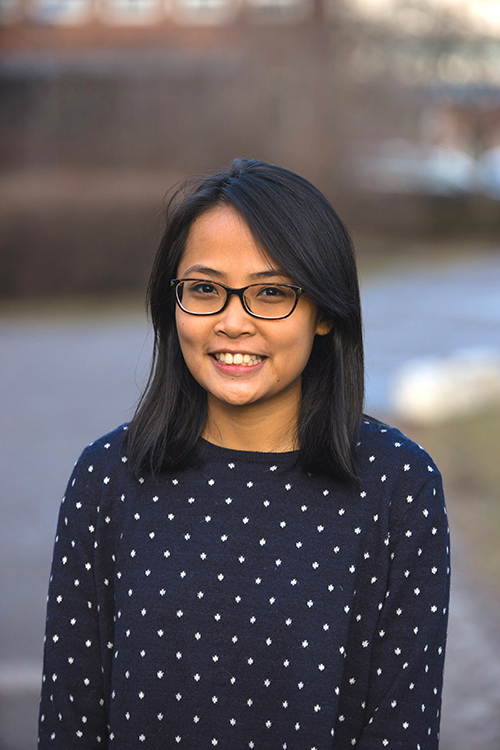Reskandi stayed at KTH for her PhD studies
Reskandi Chastelia Rudjito graduated from the master's programme in Industrial and Environmental Biotechnology in 2017. After she finished her master’s studies she stayed at KTH as a doctoral student.

Hi Reskandi, what have you been up to since graduating?
After finishing the master’s programme in Industrial and Environmental Biotechnology at KTH, I continued to do a PhD in the Division of Glycoscience at the School of Engineering Sciences in Chemistry, Biotechnology and Health (at KTH). I am working on the same project as for my master’s thesis, which is the valorisation of agricultural waste to develop novel bio-based material. I am currently collaborating with other universities and companies to try and handle the by-product stream from the agricultural industry.
How is life as a PhD student?
As a PhD student, we are required to take courses, perform research as well as engage in departmental duties such as teaching. So, a regular day would usually involve 1-2 of the three points mentioned. If I am not attending any lectures, I would usually start my day in the office and then continue in the lab to perform my experiments. Each experiment is always different, so I can spend a few hours to a whole day in the lab depending on what kind of experiments I am doing.
Aside from individual work, we often have meetings in our research group to plan and discuss our research. On a weekly basis we have a meeting with the whole division to discuss any lab issues and also to share exciting research updates among our colleagues. More rarely, we also have the opportunity to travel for conferences, courses and project meetings. Being a PhD student can be quite dynamic, but I think that it is always fun to learn and try new things.

Why did you choose this programme at KTH?
I chose the Master’s Programme in Industrial and Environmental Biotechnology because I liked how applicable it was to industry and how it incorporated many courses concerning the environment. These two areas are my main interests after having studied Life Sciences for my bachelor’s degree. Therefore, I was generally interested in the courses the programme had to offer. Courses that met my expectations were on ‘Environmental Toxicology’ and ‘Bioprocess Design’.

Are there any insights you acquired during your studies that have been particularly useful for you in your career?
We had a project course in which we as a team planned, managed and executed our own lab-based project. This project was based on a theoretical problem in which we had to produce a certain enzyme in a large quantity, with a certain degree of purity, within a given time. The task was challenging but we succeeded in the end. It was probably the most memorable course I took. Here, not only did we learn the fundamental and practical knowledge to physically produce the enzyme, but we also learned management and teamwork skills. These soft skills go a long way and have helped me to plan and organise my research better in my PhD. It has also helped me to work both independently and collectively with my group members.

What were the best aspects of your studies at KTH?
During the summer of 2016, I joined the Stockholm International Genetically Engineered Machine (iGEM) team, which had members from KTH, Karolinska Institute (KI) and Konsfack. Together we worked on a research project that involved some use of genetic engineering, i.e. DNA modifications, that would later be showcased in the final iGEM conference. Our project was on the development of a smart wound dressing for chronic wounds. The project was academically stimulating, and it was also a really good opportunity to work with motivated students coming from different backgrounds. We got the opportunity to travel to the US to present our work and overall it was a great experience! The best aspect of my study period, however, would probably be the fact that I got to meet my fiancé, who was also studying at KTH. I feel very lucky and will always look back at KTH as a special place in my life.
What is your best memory from your time at university?
I remember us as a class going out a few of times after spending the whole day in the lab during our project course. We had a long tiring day - but getting together and having fun and relaxing together made it all worth it.

What would you say to a student thinking of applying for this programme?
I think that if you are interested in the implementation of biotechnology for industry and the environment, then this programme is a good option. The programme offers a fair amount of lab work and lectures. There is also time to participate in competitions or internships, especially in the summer. Overall, I am glad that I enrolled in the programme. One thing that I would do differently, however, is to participate in more non-academic activities at KTH. I think that participating in events organised by the student union or attending career conventions could really open up valuable networking opportunities for the future.
